
.....a personal reflection on being an Evangelical Christian in the context of the universal Church of the Lord Jesus Christ in the Post-modern Age.
Preface to the not so quiet "Quiet Place"
Over the years the focus and content of this page has changed. I make no apology for that. It is to be expected that as we walk with Christ, we find that where we were several years ago is not where we are now. In the course of our Christian pilgrimage we continue to learn and grow. In that learning and growing, by God's grace we may learn wisdom. It is my desire to share some of those things I have learned along the way, positive and negative. It is my desire that all who read this would be or become wisdom hunters, and may these offerings on the not so quiet Quiet Place be a means to that end.
I am no longer keeping this page updated. For some time now my main focus of publication has been and will continue to be on my blog: ~ The Billy Goat Blog ~. If you want to find out my thoughts on God, faith, life and what ever, you will find those discussions there.
Peace to all who love Jesus,
Mr. Bill, March 8, AD 2009
"To beleive Him, not just when I accept Christ as Savior, but every moment, one moment at a time: this is the Christian life, and this is true spirituality." (Francis Schaeffer, True Spirituality)
The True Christian Sabbath: The "sabbatismos" that remains for the people of God has nothing to do with a day of the week. The Hebrews 4:9-10 passage has to be grossly wrenched out of its wider context to say that. Yes, we are obligated to keep the Sabbath, but that Sabbath we are to keep has nothing to do with a day of the week, but on the contrary has everything to do with resting and remaining in Christ alone by grace alone through faith alone.
"The walk of faith is a risky path." - Ollie Goad
|
The Bible
The Ecumenical Creeds
The Apostles Creed
|
I believe......in God the Father Almighty, Maker of heaven and earth, And in Jesus Christ His only Son our Lord; who was conceived by the Holy Spirit, born of the virgin Mary, suffered under Pontius Piliate, was crucified, dead, and buried; He descended into hell; the third day He rose again from the dead; He ascended into heaven, and sits on the right hand of God the Father Almighty; from where He shall come to judge the living and the dead. I believe in the Holy Spirit;
the holy universal Church; the communion of the saints; the forgiveness of sins;
the resurrection of the body; and the life everlasting. The Apostles' Creed |
1. Q. What is your only comfort in life and death?A. That I am not my own, but belong with body and soul, both in life and in death, to my faithful Saviour Jesus Christ. He has fully paid for all my sins with His precious blood, and has set me free from all the power of the devil. He also preserves me in such a way that without the will of my heavenly Father not a hair can fall from my head; indeed, all things must work together for my salvation. Because I belong to Him, Christ, by His Holy Spirit assures me of eternal life and makes me heartily willing and ready from now on to live for Him. Heidelberg Catechism | |
A Life of Faith, The Obituary of Anna Margaret Spade
by her Pastor, J. W. Lilly (1890). What will be written about your life?
The Smashing of the Idols
... my personal pilgrimage
|
"But when the fullness of time came, God sent forth His Son, born of a woman, born under the law, in order that He might redeem those who were under the law, that we might receive the adoption as sons." "... Jesus came into Galilee, preaching the gospel of God, and saying, 'The time is fulfilled, and the Kingdom of God is at hand; repent and believe in the gospel.' " (Mark 1:14b-15) Letter by Bishop John Hooper (1555): Words for the Christian Church as it enters the 21st Century. |

“When you focus on grace in the fullness of it’s meaning, you will keep the law, liberty, and love in their proper relationship to one another. But if you focus on any one of them instead of grace, you will invariably end up in the swamp of legalism or license.If I will maintain a scrupulosity of conscience about anything, it will not be the jot and tittle of the law nor the boundaries of liberty, but God's Sovereign grace alone. Only then will my righteousness "exceed that of that of the Scribes and Pharisees", because that righteousness is the righteousness of Christ my Lord and Savior apprehended by grace through faith beleiving..
(Transforming Grace: Living Confidently in God's Unfailing Love by Jerry Bridges, NavPress, 1991)
|
Association of Baptists for World Evangelism A reputable Christain organization that is a member of the ECFA. The Carl F. H. Henry Institute For Evangelical Engagement The Criswell Theological Review Battered Sheep Ministries
 "Evangelical Perspectives: Toward a Biblical Balance" by Ronald B. Mayers (Highly Recommended)
 "Wisdom Hunter" A novel about a pastor's journey from the bondage of legalism to the freedom of grace in Christ. (In association with Amazon.com.) 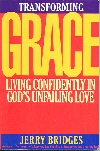 "Transforming Grace: Living Confidently in God's Unfailing Love" by Jerry Bridges (Highly Recommended)  Desiring God By John Piper  The first of John Piper's "The Swans are not Silent" series. Recommended reading. (In association with Amazon.com.)  The second in the "Swans" series. (In association with Amazon.com.)  "True Spirituality" Francis Schaefer's classic work. (In association with Amazon.com.)  Recommended Reading. (In association with Amazon.com.) 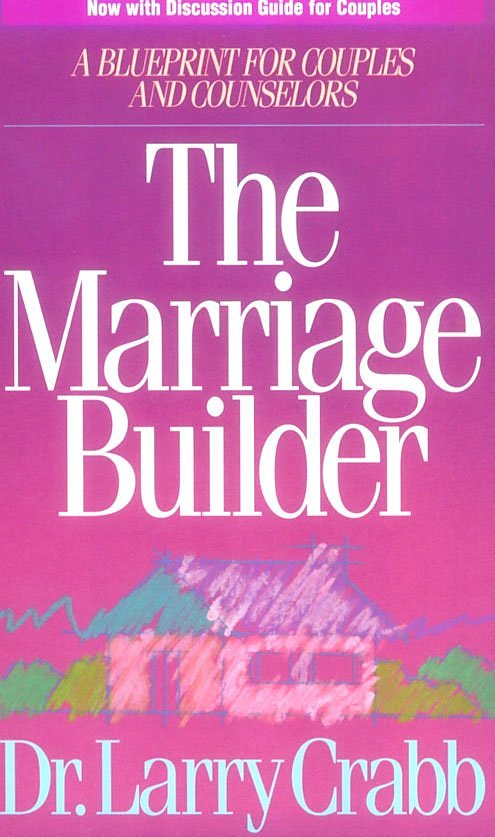 A Christian counselor recommended this book to us. It came to us at a critical point in our marriage. The first few chapters alone were more helpful then much of the "pastoral" counseling we had previously received, or other books on marriage we had read. (In association with Amazon.com.) Two books by Wendy Widder
 An encouraging and challenging book from outside of the Reformed theological box. (In association with Amazon.com.) 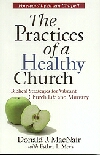 What does the Bible say about what makes a church a healthy church? (In association with Amazon.com.) 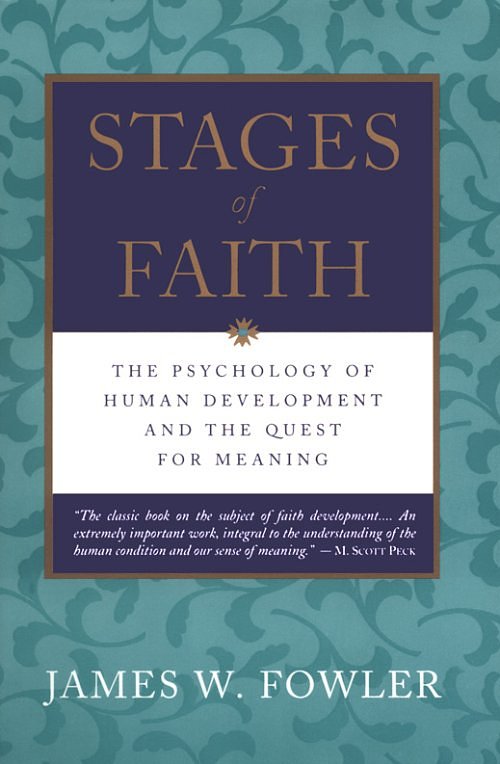 I found Fowler's observations on how faith develops and grows helpful. If you do any kind of counseling, pastoral or otherwise, this book will be an asset. (In association with Amazon.com.)
The Old Testament Gateway The Greek New Testament Gateway
Greek New Testament Audio Files (MP3) A Primer on
Baptist History The C. H. Spurgeon
Archive: A Defence of Calvinism by C. H. Spurgeon A Critical Evaluation of Paedobaptism by Greg Welty James Petigru Boyce (1887): Abstract of Systematic Theology The Doctrines of
Grace and Passion for the Souls of Men Guide to Early Church Documents Christian Classics Ethereal Library Phil Johnson's Collection at Grace to You Ministries. This Hope It took a long time to come to the point where I could write this story; a whole lifetime... Reflections upon leaving our former church. |
Thoughts: "One of the tragedies of the current Christian evangelical scene is the divisive tendencies present in many strands of the community. When the subtradition is more crucial than the Christian tradition, we fragment the unity to which God has called us and for which the Lord intercedes (John 17)......
In our zeal for creedal commitment, we can draw lines to identify our subtradition and forget we share a larger, more fundmental identity. This is not to deny the value of subtraditons or their contribution to the whole body of Christ, but it is to say that the task before the Christian community to reflect the love of Christ and evangelize the world is so vast that no subtradition can do it all by itself. It is also to say that the basic commitments and obligations to which God calls us commit us to the whole of His body, not just the part of it in which we function most easily......" Craig A. Blaising & Darrell L. Bock, "Dispensationalism, Israel and the Church: The Search for Definition"
Leaning into Some Questions, Losing Some of My Answers - Part 1
Leaning into Some Questions, Losing Some of My Answers - Part 2
by John Armstrong
Thoughts: "I do not admire the excess of some virtue unless I am shown at the same time the excess of the opposite virtue. A man does not prove his greatness by standing at an extremity, but by touching both extremities at once and filling all that lies between them."
~ Blaise Pascal
One Master Above All: "It is one of the major transitions of life to recognize who has taught us, mastered us, and then to evaluate the results in us of their teaching. This is a harrowing task, and sometimes we just can't face it. But it can also open the door to choose other masters, possibly better masters, and one Master above all." (Dallas Willard, The Divine Conspiracy, Chapter 8: On Being a Disciple, or Student of Jesus)
It is very possible for a church or movement to be very "orthodox" in doctrine, and yet exhibit ongoing cultic like patterns and tendencies. This statement is not conjecture, but comes from first hand observation over a long period of time in a former church situation. No matter how sincere a church or movement may be, it does not excuse or mitigate the damage, harm, and abuse inflicted on God's people, nor the accountability that will have to be given to the High Shepard Himself. What are your spiritual guts trying to tell you about the church you attend? The following articles are intended to help the struggling child of God sort through all the manipulative rhetoric, blame shifting, and un-Biblical pseudo-theological sophistry. (Mr. Bill, February 9, AD 2004)
Is Your Church Free from Cultic Tendencies? :A checklist for Responsible Christians from the Apologetics Index .
Uncovering Churches That Abuse : Questions that help determine whether or not a church is abusive. From Ronald Enroth's book Recovering from Churches That Abuse.
When Has Authority Gone Too Far?
by Jon Zens.
(Published by Battered Sheep Ministry)
The Ekklesia of Christ:The Exercise of Authority
by John G. Reisinger
"What Language does your Church Speak?": The Language of Abusive Churches and Groups
"The "Work" ":... (2) The pastors or elders agenda for making a name for themselves in the particular movement, association, or denomination they are a part of. This agenda is often fueled by a certain degree of megalomania that is not satisfied with controlling and abusing ones own people, but wants to also control and exert power over other pastors in a wider sphere of church relationships . Also see "Protestant papal syndrome". If you do not wholeheartedly support "the work", then you are being "petty" and lack "kingdom vision"..."
Thoughts: "In a fallen world there is need of organization, and there is also a need of Christian leadership. But the leaders, as office bearers stand in relationship to the Church of Jesus Christ, to the people of God, as brothers and sisters in Christ, as well as leaders. The Church as a whole, and the officers, are to function consciously on the basis of each one being equal as created in the image of God, and as equal in the sense of being equally sinners redeemed by the blood of the Lamb. In this way, believing in the priesthood of all true believers, believing in the supernaturally restored relationship among those who are brothers in Christ, believing in the indwelling of the Holy Spirit in each individual Christian -- organization and Christian leadership do not stand in antithesis to true spirituality.........
..... The Church needs to function consciously on the basis of the finished work of
Christ and not on the proud basis of any inherent value in itself or assumed
inherent superiority......"
(Francis Schaeffer, True Spirituality)
Thoughts: " In the New Testament there is only one person spoken of as being "annointed" in the context of spiritual authority. That person is the Lord Jesus ALONE. That is why He ALONE is called "the Christ", the Messiah which being translated means the annointed one. No where in the New Testament is a pastor or elder spoken of as being "annointed" in any special way that other believers are not." (Mr.Bill, February, AD 2004)
Ten Myths About Church Leavers
By Alan Jaimieson"Despite the almost mantra-like status of the statement "people are leaving the church" there still appears to be little understanding about who is leaving, when they leave, why they leave, and what happens to them and their faith after they leave. Of course everyone has their own view on these issues but few, especially our church leaders, have taken the time to sit down and talk with an actual leaver or two.
It is much easier dealing with stereotypes than actual people, even if the stereotypes don't help us understand what is really going on. For those interested in moving beyond the stereotypes and asking: "Who are these people who are leaving our churches?" an examination of some myths about church leavers may prove helpful."
"When people spend their lives trying to transform or fix their spouses and their kids, the natural result is exhaustion, depression and the hopeless sense of wanting to bail out of it all. Here’s a message about how God’s grace can transform relationships within a marriage and family. The first step is learning the simple difference between God’s job and ours. God’s part is to fix and change. Our responsibility is to depend on the holy Spirit, serve our families and to help equip them to be all they can be. The Christian family’s ultimate goals of harmony, obedience and full potential can be arrived at without using legalistic and manipulative methods. No wonder Bill Hybels called it, "The single best book on the family that I’ve read in recent years."..."
Desiring God Ministries
God centered resources from the ministry of John Piper."Wherever happy confidence in the sovereign power of God for our own lives and the lives of others grows weak, legalism creeps in. We inevitably try to compensate for loss of dynamic faith by increased moral resolve and the addition of man-made regulations. But wherever joyful confidence in the power of God is waning, the flesh is waxing. Which means that the morality we had hoped would save ourselves and the regulations we hoped would purify our church fall victim to the massive power of the flesh and become its instruments of self-reliance and self-sufficiency."
(John Piper, Brother We Are Not Professionals)
Provides translation services for missionaries and national church associations who do not have a Bible, or do not have a clear, reliable, and natural translation in their own language.
"Arctic Barnabas Ministries is an inter-denominational not-for-profit ministry, seeking to meet the needs of the church body in Bush Alaska, Western Canada, and Far East Russia. This is done through the encouraging and discipling of Christian leaders. These leaders - missionaries, pastors and Christian workers - face harsh challenges specific to the part of the world where they serve.
These people face very remote living conditions, isolation, extreme temperatures, and long periods of time with little to no daylight. Adjusting to such an environment is a challenge for anyone.
Arctic Barnabas is a ministry that exists to provide fellowship, respite, a listening ear, and a helping hand - the things needed to enhance the possibilities of long-term service in a place where "short term" just doesn't work. In order for someone from the outside to be effective in a village, it requires living in the area long enough to earn the right to be heard. This can take years. ABM strives to meet the needs of these workers, as well as act as a catalyst among Christians elsewhere to assist in the effort. We need to do what we can to build up and bolster Christian workers so they will be able to have an effective, long-term impact.""His students were really put out. Their teacher was a busy man with a full schedule of ministry; preaching engagements, church conferences, counseling sessions, church planting, and the all important seminary teaching he was giving to a select group to prepare them for ministry also. The days were long and full as the teacher's reputation continued to grow, and great crowds would come to see him. Things were so hectic that there were times when the teacher had no time even to eat a decent meal.
Now in the midst of all of that hectic activity, some parents had the audacity to bring their young children to the teacher, requesting that he would take valuable time out of an already filled schedule, and pray for those children and bless them!"
“We’ve gotten beyond the Galatian brand of legalism today. We haven’t resurrected circumcision as a requirement for salvation, and we’re clear that salvation is by grace through faith in Christ apart from the keeping of the law. Instead, we have developed another brand of legalism, a brand that is concerned, not with salvation, but with how we live the Christian life. I call this “evangelical legalism”… (more excerpts here... )
by John M. Frame
This article by John Frame deals with issues and concerns I have had about how some have applied the regulative principle. Simply put, one's own particular application of the regulative principle is not the sine qua non of the principle itself. (Mr. Bill, June, AD 2003)
Thoughts: "A number of year ago the pastor of our former church was preaching about the Ten Commandments. He was not expositorily preaching through Exodus 20, but preaching from that section of the Westminster Larger Catechism dealing with the 10 commandments. (A very critical distinction - the distinction between Biblical theology and Confessional scholasticism.) There was little of gospel or grace in those sermons, but much of "duty" seperated from a context of grace. As I sat and listened sermon after sermon, I gave up.
I told the Lord I could not live that way; I did not want to live that way, and I was not even going to try to live that way even if it meant I was on the "outside" because I didn't live up to someone's idea of what it meant to be a Christian. And I was deliberately pushing the "off" button when I heard that stuff from the pulpit. It was not that I was giving over to antinomianism, but a sense that the Christian life was not defined by some scholastic sense of "duty", but by the Biblical concept of who we are in Christ.
It was grace that made me go to the Lord at that time instead of chucking the whole thing and diving head first into the world. I say that because when I gave up, He came with His consolation and peace. Whatever others thought or did not think of me, I was His child and in Christ I stood accepted before the Holy God with an unconditional love not based on anything I could do or not do.
It was in the light of the realization of God's unconditional love for me in Jesus Christ, that I more and more desired to love Him in return, and by His grace reflect His love in my heart and life." (Mr. Bill, May, AD 2002)
"...All of them were committed to the reformed tradition and all of them knew that the reformed tradition wasn't the last word in Christianity... ...He would say things like "a final theological formulation is nothing more than a lack of imagination." This was his way of saying that the TULIP and the Westminster Confession weren't the last word in matters of theology... ...if you agree with every word from Berkhof or the Confession, you have come dangerously close to elevating those documents to the same level as Scripture. We must always keep in mind that these are man's summaries of the Bible, not the Bible... "
"The principle of being always reforming is not stated explicitly in Scripture, rather it is one of those theological propositions that is deduced by good and necessary consequence. It is deduced from the Scriptural considerations that only the Scripture is infallible and that man is sinful. Thus, sinful man can study the Scriptures and summarize the Scriptures into everything from formal theological statements, to informal expressions of personal conviction, to guidelines for Christian living.
But, those human summaries, guidelines, and other assorted whatnot can never carry Scriptural authority. Because such things are formulated by men we always have to assume that, even though we're really very sure we're right about the things of which we speak, we could be wrong. "Always reforming" gives us a kind of safety valve or escape clause by which we ourselves, or later generations, can revisit or rethink what we said back in the day. "Always reforming" also honors the pre-eminent authority of Scripture and relativizes all other expressions of faith."
What does Sola Scriptura mean? What does Sola Scriptura look like in practice? Do we look at the Bible though the glasses of historical theology, or do we look at historical theology through the glasses of Scripture? Can there be a sin of "confession-olatry"? Do we really want to say that any one era of historical theology, Puritan or whatever, was really the last word on exegesis and theological development?
Pray as though nothing of eternal value is going to happen unless God does it.
Prepare as giving "my utmost for His highest."
Seek not to "get a message" from the scripture, but seek "the message" of the scripture.
Be satisfied not with producing good content, put with producing good people.
Attend carefully to private and public walk with God, knowing the congregation never rises to a standard higher then that being lived by the preacher.
Be "persuaded that the gospel is the power of God unto salvation."
"Preach the word" - not about the word, not from the word, not with the word - affirming it is only proclamations of God's word that carry God's authority and His promise to bless.
Exalt Christ preeminently, trusting He will then draw people to Himself.
Balance declarations of "salvation by faith alone" with declarations describing the life Christ produces when He sees saving faith: transformed heart, desire to serve the Lord not self, growing affection for His word, increasing obedience, fruit of the Spirit, saltiness in society, maturing Christlikeness.
Depend solely upon God for the translation of spiritual truth into life.
Preach Christ's word in Christ-like demeanor.
Agree it is impossible at one and the same time to impress people with Christ and with oneself.
Allow the preaching to exude the fruit of the Spirit, lest the preaching fail to produce Christ-like lives.
Preach with humble gratitude, as one privileged to be an oracle of God.
Trust God to produce in the hearers His chosen purposes - irrespective of whether the results are readily visible.
(Published by The Cornerstone Trust, Box 1906, Cave Creek, AZ 85327)
The Chicago Statement on Inerrancy: An Evangelical & Orthodox Witness to the Divine authority of the Bible.
The Cambridge Declaration of the Alliance of Confessing Evangelicals, April 20, 1996. Affirmation of the foundations of the Christian faith as expressed in the Reformation.
on Praying for Reformation in the Churches
"Why do I cringe when I hear you pray that such and such Evangelical church would become "Reformed"? I have reason to fear that what you mean by that is for that church to become a clone of your church; crossing all your "t"'s and dotting all your "i"'s in both theology and practice. I also have reason to suspect your measure for such things focus on the outward appearance, and tends to ignore the evidence of God's working in the heart of the brethren in that Evangelical church; hunger and desire for God, the image of Christ being formed in their hearts, knowledge of and desire for the God's Word, and clear evidence of the fruit of the Spirit in their lives (Galatians 5:22).
It is my prayer that God will continue to pour out His blessing on the outreach and ministries of that sister Evangelical church, knowing if that happens, God is well able to take care of whatever needs reforming or changing in that fellowship.
What is the demand of Biblical evangelical love of the brethren? What does it profit to have all "knowledge" and not have love?"
(Mr. Bill, April, AD 2002)
on Apocalypticism:
"....on the matter of sensational apocalypticism, many point to Hal Lindsey as if he typifies the meaning of dispensationalism. It might be said that Lindseyism is to dispensationalism as Reconstructionism is to Reformed Theology.... Such extremes should not be taken as the defining types of the tradition to which they are related. But in the case of Lindseyism, besides many hermanutical problems, there is the matter of compromising the futurism that has always been central to dispensational eschatology...... It is not correct simply to identify the popular apocalypticism of Hal Lindsey with dispensationalism." Craig A. Blaising; Dispensationalism, Israel and the Church; The Search for Definition, (Zondervan, 1992)
"...One should observe that fact that in biblical history, prophetic fulfillment has always been identified and proclaimed by prophetic authority. It takes prophetic authority or the actual appearance of Jesus Christ Himself to identify any particular pattern of trouble and conflict in the world as the Tribulation. One cannot by a claim of "scientific" interpretation divine that kind of authority for oneself today."
("Progressive Dispensationalism"; Craig A. Blasing & Darrel L. Bock; BridgePoint-Baker Books; 1993, (pb 2000); page 294)

Probably the best statement of the Reformed Amillennial view. If you agree with Hoekema or not, I personally recommend this as a "must read" for serious students of eschatology wanting to understand where Amillennialism is today. |
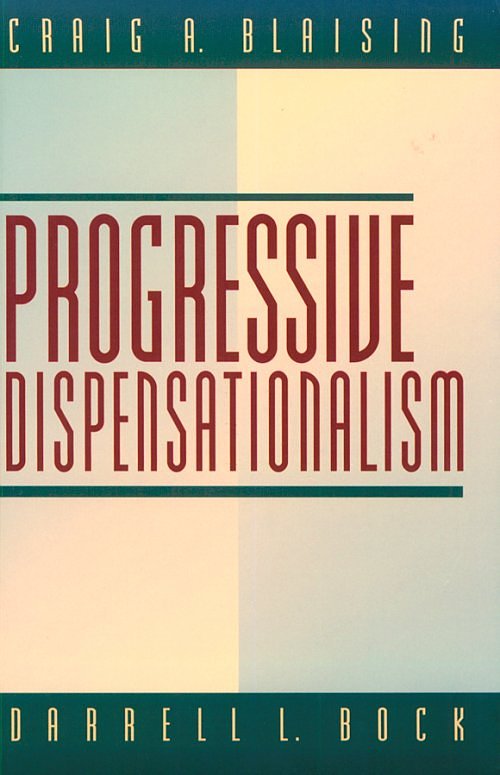
In his review of Progressive Dispensationalism, Allen MacWhinney of Reformed Theological Seminary is quoted as saying, "This is not your fathers Oldsmobile." Progressive Dispensationalism is not the dispensationalism of the Schofield notes. Nor is it a regurgitating of Ryrie and Pentecost's definitions of dispensationalism of the 1960's and 70's. In this volume one sees the result of dispensationalism's historical foundational commitment to Biblical theology. It is that foundational dynamic that accounts for the changing face of dispensationalism as outlined by Blaising and Bock. I personally found Blaising & Bock's discussion of the Biblical covenants one of the best I've read. Yes, dispensationalists recognize covenants just as the better Covenant theologians recognize the Bible speaks of dispensations (I Cor. 9:17, Eph. 1:10 & 3:2, Col. 1:25). Their differences go deeper then the semantics of those two words. I personally recommend this as a "must read" for serious students of eschatology wanting to understand the recent trends in dispensationalism. |
|
Over the last 60 years Evangelical theology has not been static. Russell D.Moore's The Kingdom of Christ: The New Evangelical Perspective traces the development of the growing Evangelical consensus regarding the "already" and "not yet" perspective of the Kingdom reflected in both the modified covenant theology of Hoekema's The Bible and The Future and Blaising and Bock's Progressive Dispensationalism. Moore traces the impact of this Evangelical Kingdom consensus on the issues of eschatology, soteriology, and ecclesiology, and the meaning of that consenses for Evangelical engagement in the public square and cultural arena. Moore's discussion also gives a starting place for an Evangelical response to Post-modernism and the concerns of the Emergent church. This book is not for the faint hearted. About one third of it is extended footnotes and bibliography. It gives a valuable historical picture of the Kingdom aspect of Evangelical theology since the end of World War II, starting with the concerns of Carl F.Henry and George Ladd. I highly recommend this book.(For a more extended review of this book click here.) |
"Whoever will call upon the name of the LORD will be saved."
How then shall they call upon Him in whom they have not believed? And how shall they believe in Him whom they have not heard? And how shall they hear without a preacher? And how shall they preach unless they are sent? Just as it is written, "How beautiful are the feet of those who bring glad tidings of good things!" (Romans 10:13-15)
Then He said to His disciples, "The harvest is plentiful, but the workers are few. Therefore beseech the Lord of the harvest to send out workers into His harvest." (Matthew 9:37-38)
The Quiet Place project is maintained by webservant, Bill Newcomer. The Quiet Place Pages are a personal reflection of what it means to me to be a Christian in the context of the universal Church of the Lord Jesus Christ.
Your comments or questions are welcome. Please mention "Quiet Place" in any correspondence.
Original construction September A.D. 1995. Moved to Geocities July, A.D. 2005. Last update: March 8, A.D. 2009.
The Owl's Nest: My personal homepage.